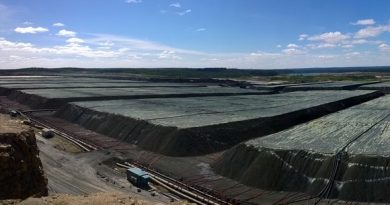Alaska needs flexible offshore oil leasing says senator

Decisions by Royal Dutch Shell and by Statoil to pull out of the U.S. Arctic offshore show that the federal government should change its oil and gas leasing program for that remote region, Senator Lisa Murkowski argued at a Senate hearing on Tuesday.
Murkowski used an Energy and Natural Resources Committee to reiterate her call for Arctic-specific terms that are longer than the standard 10-year duration that applies to federal offshore oil and gas leases.
And Murkowski, who chairs the committee, also used the hearing to blast the Obama administration for what she said were regulatory hurdles that resulted in Shell’s and Statoil’s Alaska pullouts.
“We all know that the physical environment in the Arctic is tough. But it was not the environment that prompted these decisions. It was, to a large degree, the regulatory environment, which continues to deteriorate,” Murkowski said in opening remarks at the hearing. “I believe that a new paradigm is in order, one that recognizes the federal offshore areas in the Arctic are a frontier play worthy of a modern, adaptable leasing structure designed to help rather than to block exploration.”
Limited season in Arctic
Longer lease terms are justified because of the seasonal nature of Arctic outer continental shelf drilling, Murkowski said. “What many people don’t understand is the very, very, very limited season that we have within the Arctic,” she said at the hearing.
Both Shell and Statoil made similar arguments when they applied in 2014 to the Bureau of Safety and Environmental Enforcement for five-year “Suspension of Operations” approvals for all of their Arctic offshore leases — a status that would effectively extend terms of their leases by five years. Beaufort Sea leases are scheduled to expire starting in 2017, and Chukchi leases are scheduled to expire in 2020, according to data from the Bureau of Ocean Energy Management, BSEE’s sister agency.
BSEE rejected those applications on Oct. 16. Such suspensions are allowable only under specific conditions that result in unanticipated delays, BSEE said in its rejection lettersto Shell and to Statoil, such as adverse court rulings and damaging storms. Some suspensions had already been issued in the past after federal courts issued rulings that temporarily halted exploration work, meaning leases had already been extended, BSEE pointed out in its letters. Neither Shell nor Statoil submitted specific plans to resume operations in the future, as is required for lease extensions, BSEE said. And Shell’s argument that Arctic ice conditions justified longer lease terms also failed to meet the test, BSEE said.
Shell leases
Shell “voluntarily chose to enter into 10-year leases (the maximum lease length permitted by statute) knowing of this limitation. If this fact were a basis for suspensions, all Arctic lessees would be arguably entitled to suspensions, despite lessees knowing that ice would limit their operations,” BSEE said in its letter to Shell.
Even before this year, Statoil signaled reservations about offshore Arctic drilling. In 2013, a company executive suggested that Statoil might abandon its Chukchi leases. Statoil has also delayed other Arctic projects, and its recent exploration in the Barents Sea yielded disappointing results.
Another company with significant interests in the Chukchi, ConocoPhillips, still has its leases and submitted an exploration plan to BOEM in 2012. But ConocoPhillips’ Chukchi program, targeting a prospect called Devils Paw, was put on hold in 2013. The program remains on hold, company spokeswoman Natalie Lowman said on Tuesday.
Related stories from around the North:
Canada: Energy challenges in Canada’s North, Eye on the Arctic
Finland: Experts question Finland’s energy decisions, data, Yle News
Norway: Japan wants wind power from Arctic Norway, Barents Observer
Russia: No alternative to Arctic oil says Russia environment minister, Barents Observer
Sweden: Will Sweden be able to produce enough energy in the future?, Radio Sweden
United States: Drilling in Arctic Alaska oil reserve approved, Alaska Dispatch News



